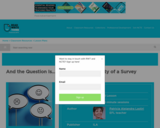
In this lesson, students learn to ask the right questions about the validity of surveys.
- Subject:
- English Language Arts
- Material Type:
- Activity/Lab
- Lesson
- Provider:
- ReadWriteThink
- Provider Set:
- ReadWriteThink
- Date Added:
- 10/05/2018

In this lesson, students learn to ask the right questions about the validity of surveys.

Theres no question that students will be able to compose good survey questions by the end of this lesson.

Students explore using electronic messaging and Internet abbreviations for specific purposes and examine the importance of using a more formal style of writing based on their audience.

Plagiarism is presenting someone else's work as your own. It can include copying and pasting text from a website into a project that you're working on, or taking an idea from a book without including a citation to give credit to the book's author. Plagiarism is very common, and the internet has made it even more common. However, if you are careful to cite your sources, it's not too hard to avoid plagiarism.
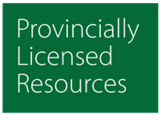
Comprehensive bibliographic full text reference and Canadian current events.
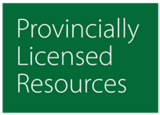
Canadian Major Dailies provides access to current content and backfiles from over 24 of Canada’s top national and regional newspapers.

Students examine books, selected from the American Library Association Challenged/Banned Books list, and write persuasive pieces expressing their views about what should be done with the books at their school.

Students become familiar with the similarities and differences between electronic and printed text by comparing the textual aids included in a textbook with those of an educational website.

This lesson takes advantage of students' interest in music and audio sharing. Students investigate multiple perspectives in the music downloading debate and develop a persuasive argument for a classroom debate.

Students investigate how and why copyright law has changed over time, and apply this information to recent copyright issues, creating persuasive arguments based on the perspective of a particular group.

In our Avoiding Plagiarism module, we gave you tips for citing, quoting, and incorporating various sources into your writing projects. However, depending on what types of sources you use, you may also have to consider copyright and fair use laws. For example, if you want to use someone else's photo or song in one of your own projects, you'll need to make sure you have the legal right to do so. In this tutorial, you'll learn about the copyright protections that apply to work posted online, including images, text, videos, and more. You'll also learn about the rules that determine which of these resources you can use, and how you can use them.

An Observation and Inquiry Sheet guides students as they analyze and compare their reactions to the value, engagement, and credibility of three websites related to Anne Frank and the Holocaust.
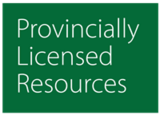
Encyclopedia Britannica Online is a fact-checked online encyclopedia with hundreds of thousands of objective articles, biographies, and videos. Students from Prekindergarten to Grade 12 can access age-appropriate, trustworthy content.
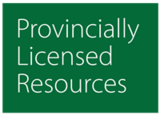
General OneFile is a cross-disciplinary research database (science, literature, history, etc.). Access to more than 14,000 periodicals, newspapers, reference books, and multimedia sources, along with over 163,000 images, 6,400 audio files, and 1.3 million videos.
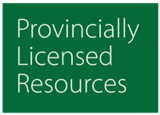
Gale Health and Wellness offers access to medical journals, magazines, reference works and multimedia. This comprehensive consumer health resource provides authoritative information on the full range of health-related issues, from current disease and disorder information to in-depth coverage of alternative medical practices.
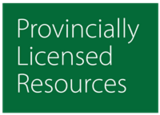
Gale in Context: Elementary is a research database for Kindergarten to Grade 5 students. This resource is a credible, reliable and ad-free information source. Students, teachers and parents will find age-appropriate videos, images, biographies, magazine and newspaper articles on popular topics.
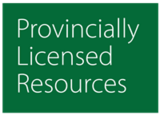
Gale in Context: Middle School is a research database for Grade 6 - Grade 8 students. This resource is a credible, reliable and ad-free information source. Students, teachers and parents will find age-appropriate videos, images, biographies, magazine and newspaper articles on popular topics.
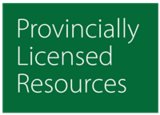
This cross-searchable environment brings together Gale’s premier literary databases to allow users to search across a library’s resources (Gale Literature Resources Center, Scribner Writer Series and Twayne's Author Series) to discover and analyze content in entirely new ways.
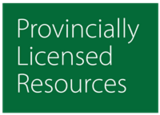
The Health and Medicine database provides periodical and reference book content designed for both nursing and allied health students as well as consumer health researchers.
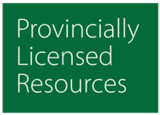
Ideal for students, law school faculty, and legal researchers, Gale OneFile: LegalTrac provides indexing for more than 1,200 major law reviews, legal newspapers, specialty publications, Bar Association journals, and international legal journals, including more than 200 titles in full text.